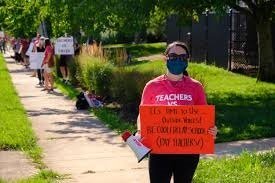Mahsood Shah (Swinburne U) wanted to know how students learnt during COVID 19 – so he asked three peak-body leaders
by CHRISTOPHER HALL, BELLE LIM, MAHSOOD SHAH, KEVIN TANAYA
The COVID-19 pandemic has had a huge impact on the student learning experience. This article is based on discussions with the National Union of Students (NUS) and the Council of International Students Australia (CISA). Engagement with these peak student representative bodies provides insights into the experience of both domestic and international students during the COVID-19 pandemic. The key messages from the discussion include the following:
Aspects of the student learning experience universities have done well during COVID-19
* ability of universities to transition to on-line delivery rapidly without major disruption. The transition has helped international students stuck overseas to continue their studies
* on-line technology such as Zoom has provided more opportunities for interaction between students and teaching staff than were possible in large on-campus lectures
* being able to fully teach on-line has prompted universities to invest in technology and develop staff capability
* re-design of assessments and providing more flexibility are much appreciated.

Aspects of the student learning experience that need to be improved
* varying degree of teaching quality in using on-line technology to effectively teach and engage students
* less contact hours compared to on-campus lectures
* low sense of belonging to the university while learning on-line
* inflexible timetable for offshore students due to difference in time zones
* delayed transition to on-line mode of delivery at some regional campuses due to technology issues.
The future for traditional lectures
* contact hours should not be reduced
* alternative teaching methods must provide value for money
* new methods of teaching should recognise the importance of student interaction and engagement with and between teachers and peers
* students love to attend on-campus lectures with the opportunity to interact with peers
* in some disciplines, lectures cannot be replaced due to the practical nature of the content.

Personalised support to students during COVID-19
* there has been lack of support given to commencing students in 2020
* many commencing students are unable to navigate the support services they need
* the need for better communication channels to reach out to students about the support available
* job cuts to professional staff have affected the ability of universities to provide personalised support
* proper training of staff is required to manage sexual harassment, mental health, and domestic violence cases. International students have specific issues such as visas, health cover and culturally sensitive support.
Many international students are under a lot of financial stress and institutions need to be flexible in tuition fee payments. Both CISA and NUS suggested the need for institutions to involve students from the beginning to co-design improvements, rather than asking after their implementation. The engagement with CISA and NUS provides useful insights into the challenges faced by students during COVID.
***
Professor Mahsood Shah, Dean Swinburne Sydney (Moderator) mahsoodshah@swin.edu.au
Ms Belle Lim, President, Council of International Students Australia pres@cisa.edu.au
Mr Christopher Hall, National Education Officer, National Union of Students education@nus.asn.au
Mr Kevin Tanaya, National Secretary, Council of International Students Australia secretary@cisa.edu.au

